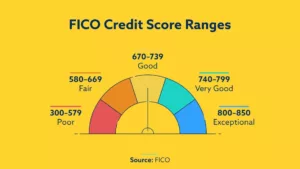Student loan debt has reached a staggering $1.16 trillion in outstanding balances. It is the only type of consumer debt not decreasing, according to a study from Experian, which analyzed student loan trends from 2008 through 2014.
There are 40 million Americans who now have at least one outstanding student loan in part due to increasing tuition.
But what about those with multiple student loans? On average, borrowers are carrying roughly four student loans each, up from less than three in 2008. Paying multiple student loans can be confusing and costly. Student loan consolidation may be the answer.
Guide to Student Loan Consolidation
Student loan consolidation can help borrowers to alleviate some student loan obligations and cut down the confusion. But don’t create bigger headaches for yourself by responding to one of those “Obama Wants to Forgive Your Student Loans” tweets, emails or online ads. You can consolidate student loans on your own with a little time and work. Student loan debt relief outfits charge fees for many services that borrowers could obtain on their own for free.
What Is Student Debt Consolidation?
Loan consolidation means combining multiple loans into one single loan. The borrower takes out a new loan to pay off multiple student loans. The end result is the borrower only has to pay off the new consolidation loan. That new loan will have its own interest rate and repayment terms.
Student loan consolidation can be attractive to borrowers because it offers borrowers convenience and frequently results in longer repayment periods along with lower monthly payments.
Federal student loans – figure out what and who you owe
Loans can move from one servicer to another and transfers can create headaches. Many times students do not know what loans they have or the type. All of your federal student loans can be tracked at the National Student Loan Data System website: www.nslds.ed.gov. You can also obtain a free credit report at www.annualcreditreport.com to see what student loans are listed on your credit reports.
Where to start the federal student loan consolidation process
Borrowers can consolidate the federal loans into the Direct Loan Program for free at StudentLoans.gov. There is no charge to consolidate federal student loans into a Direct Loan Program which is then eligible for a monthly payment based on your income. These payments can be as little as $0 per month if your income is low.
What types of loans can be consolidated?
The following loans can be consolidated in the Federal Direct Consolidation program. Apply online at: StudentLoans.gov
Subsidized Loans:
- Subsidized Federal Stafford Loans
- Direct Subsidized Loans
- Subsidized Federal Consolidation Loans
- Direct Subsidized Consolidation Loans
- Federal Insured Student Loans (FISL)
- Guaranteed Student Loans (GSL)
Unsubsidized Loans:
- Unsubsidized and Nonsubsidized Federal Stafford Loans
- Direct Unsubsidized Loans, including Direct Unsubsidized Loans (TEACH) (converted from TEACH Grants)
- Unsubsidized Federal Consolidation Loans
- Direct Unsubsidized Consolidation Loans
- Federal PLUS Loans (for parents or for graduate and professional students)
- Direct PLUS Loans (for parents or for graduate and professional students)
- Direct PLUS Consolidation Loans
- Federal Perkins Loans
- National Direct Student Loans (NDSL)
- National Defense Student Loans (NDSL)
- Federal Supplemental Loans for Students (SLS)
- Parent Loans for Undergraduate Students (PLUS)
- Auxiliary Loans to Assist Students (ALAS)
- Health Professions Student Loans (HPSL)
- Health Education Assistance Loans (HEAL)
- Nursing Student Loans (NSL)
- Loans for Disadvantaged Students (LDS)
Consolidating federal loans currently in default
If you are in default, you must meet certain requirements before you can consolidate your loans. If you want to consolidate a defaulted loan, you must either make satisfactory repayment arrangements on the loan with your current loan servicer before you consolidate, or you must agree to repay your new Direct Consolidation Loan under the:
- Income-Based Repayment Plan,
- Pay As You Earn Repayment Plan, or
- Income-Contingent Repayment Plan
What is the interest rate on a consolidation loan?
A Direct Consolidation Loan has a fixed interest rate for the life of the loan. The fixed rate is based on the weighted average of the interest rates on the loans being consolidated, rounded up to the nearest one-eighth of 1%. There is no cap on the interest rate of a Direct Consolidation Loan.
What will be your new federal student loan payment after consolidation?
When you complete the Federal Direct Consolidation Loan Application and Promissory Note you can choose a payment that is income contingent and based on what you can really afford. The fastest way to repay student loans is the ten year full repayment plan. If your income is low there are alternative repayment plans. But the alternative repayment options may cost you more even though they give you a lower payment.
Can private student loans be consolidated?
Yes. Private student loans can be consolidated but NOT through any government-backed program. When it comes to private student loans, borrowers often encounter confusion and think they are like government student loans. They are not. Private student loan lenders are not required to allow you to consolidate them.
Borrowers with private student loans can consolidate loans through refinancing. A private consolidation loan is merely replacing one or more private education loans with another. The main benefit of private student loan consolidation is obtaining a single monthly payment. But in some instances, with a good credit score, there may be an opportunity to reduce the monthly payment since the consolidation resets the interest rate and terms of the loan.
Consolidating private student loans does not guarantee lower payments
Consolidating your private student loans does not guarantee you’ll have a lower payment. It is quite possible your monthly payment after consolidation may be the same or higher than what you are currently paying. Private student loans just don’t have the same payment adjustments based on income like a government loan does. FICO scores matter when you consolidate private education loans. Private lenders require borrowers to pass a credit check to get the best rates. That means if your score is not good (660 or above), you could wind up paying more if you consolidate.
Where to go to consolidate private student loans
There are several banks and lenders that offer private student loan consolidation. Wells Fargo is one such bank where borrowers can combine multiple private student loans with multiple payments into one loan with a single payment, or refinance a single loan. Borrowers may be able to receive a lower monthly payment with a reduced interest rate or an extended repayment term. But borrowers need to keep in mind by extending repayment terms they may increase the amount of interest paid over the life of the loan. When evaluating a private consolidation loan, ask whether the interest rate is fixed or variable, whether there are any fees, and whether there are prepayment penalties.
What if you have both federal and private student loans?
While it’s not possible to use the federal loan consolidation program to combine your federal and private loans, it is possible to consolidate federal and private loans with certain private lenders. Through this process, you actually apply for a new loan (which is used to pay off your existing loans) and you’re given a new interest rate, which means that in addition to consolidating you are also refinancing your student loans.
Beware when consolidating federal and private loans together
It is generally not a good idea to consolidate your federal and private student loans together into a private lender through the refinancing process. Federal consolidation programs offer far superior benefits and lower interest rates for consolidating federal student loans. Don’t lose these benefits by combining a federal student loan with a private student loan, consolidate them separately.
There are benefits and protections for federal student loans that simply do not come with private lenders. For instance:
- Under the Public Service Loan Forgiveness Program (PSLFP), your Direct Loan balance may be eligible for forgiveness after 120 payments if you’ve worked in the public sector that entire time.
- The Teacher Loan Forgiveness Program available for teachers who work in schools that serve low-income families full-time for five consecutive years. If you are an active member of the U.S. Military, you may also be able to take advantage of special benefits for student loan holders.
- Borrowers facing financial hardship may qualify for the government’s Income-Based Repayment (IBR) program, which allows reduced monthly payments based on financial hardship. Benefits like these are not available to private student loan borrowers.
How consolidated student loans impact credit reports
There may be direct and indirect benefits to your credit score after consolidating student loans. The major impact to your credit score is that multiple monthly payments that may be difficult to maintain will now be manageable with one single, possibly lower monthly payment. Consistently making on-time payments is the best action to improve your credit scores.
Here are several ways consolidating students may impact your credit scores:
- Fewer open credit lines. When you apply for credit, banks look at the number of open credit lines with balances. If you have too many open credit lines you may not be approved. By consolidating your student loans, you replace many open student loans with one new loan.
- Paid off credit lines. Once you consolidate your student loans into a single loan, all those multiple loans will show as paid in full. Having a history of paid in full loans looks a lot better on your credit reports than unpaid debt
- Your credit score could take a small hit—at first. A consolidation triggers a hard inquiry into your credit history. The hard inquiry could ding your score by several points. But after 12 months, the inquiry has little impact to your credit score. And, as you continue to make on-time payments, your credit score will improve.
- A lower monthly payment could make it easier to pay on time. Payment history is 35 percent of your FICO score. If the lower monthly payment makes it easier for you to make your payments on time, it is likely to have a positive impact on your credit score.
- Student loans are often seen as good debt. Good debt can be considered as an investment in something that creates value, and it can help you improve your creditworthiness when you continue to make on-time payments.
- Installment loans diversify the types of credit you use. The types of credit used make up 15 percent of your FICO score. Student loans are considered installment credit unlike credit cards which are considered revolving credit. Having different types of credit can positively impact your score as long as all of the accounts are paid on time.
Resources
There is a good deal of misinformation when it comes to consolidating student loans. The below resources can help you sort out what direction you need to pursue:
- Federal Student Aid
- FAQs about federal student loan consolidation
- Federal Direct Consolidation Loan Application
- Paper version of the Federal Direct Consolidation Loan Application
- Federal Student loans vs. Private Student Loans
- Private Student Loan Consolidation











